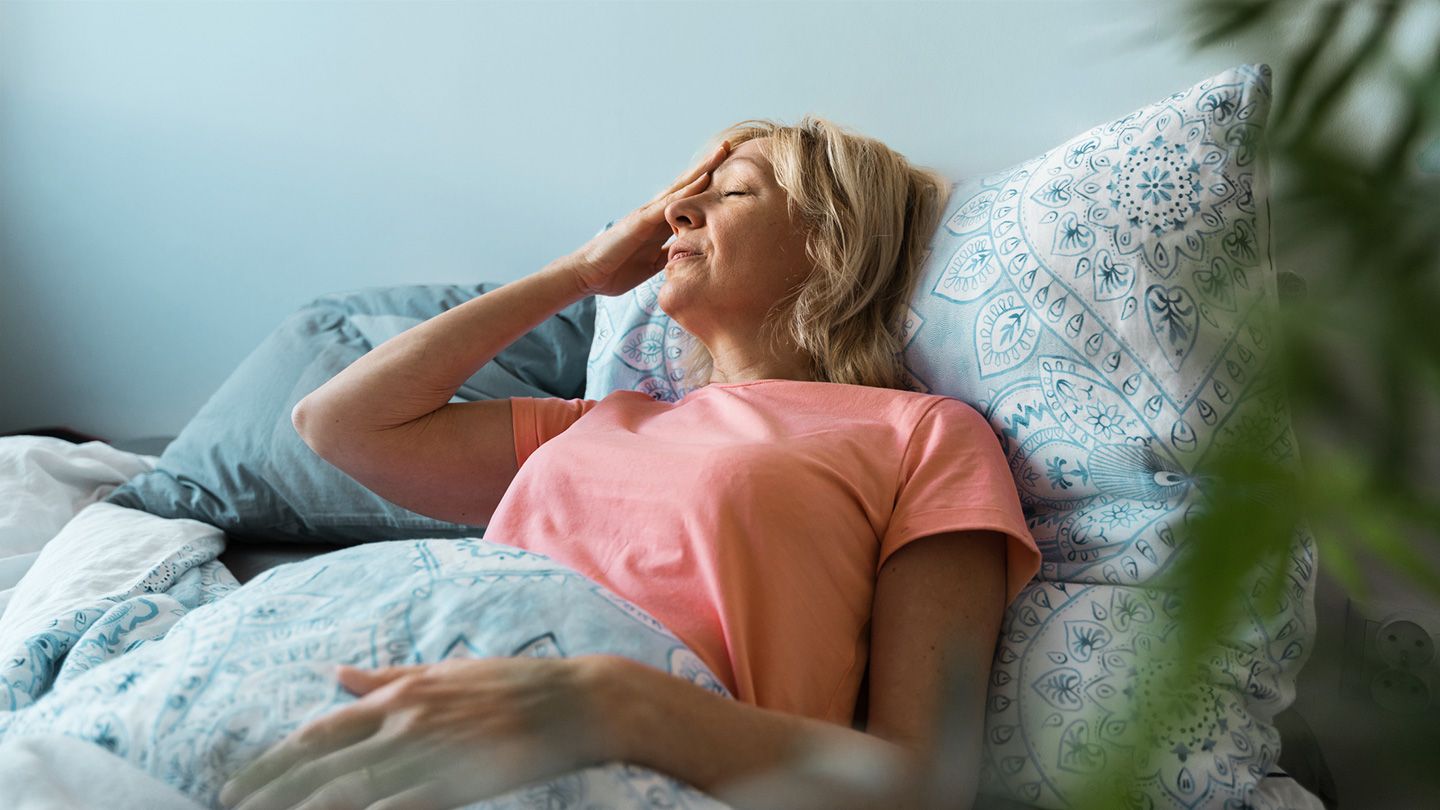Hot flashes are one of the most common symptoms experienced by women after menopause. These sudden and intense feelings of heat can be uncomfortable and disruptive. In this post, we will look into the causes of hot flashes post-menopause, examining how hormonal changes, lifestyle factors, and other influences can trigger these episodes.

Contents
Causes of Hot Flashes After Menopause
Hot flashes after menopause are a common and often distressing symptom for many women. These episodes of intense warmth can affect the upper body and are sometimes accompanied by sweating redness, and rapid heartbeat. Although the exact mechanisms behind hot flashes are not fully understood, several key factors are believed to contribute to their occurrence:
1. Hormonal Changes
The primary cause of hot flashes is the decrease in estrogen levels that occurs during menopause. Estrogen affects the hypothalamus, the part of the brain responsible for controlling body temperature. With lower estrogen levels, the hypothalamus may mistakenly sense that the body is too hot, triggering a hot flash to cool down. This process can cause blood vessels near the skin’s surface to dilate rapidly, leading to the sensation of heat and visible redness.
2. Lifestyle Factors
Certain lifestyle choices and environmental factors can also trigger hot flashes or exacerbate their severity. These include:
- Diet: Spicy foods, caffeine, and alcohol have been reported to trigger hot flashes in some women.
- Smoking: Smokers are more likely to experience severe and frequent hot flashes than non-smokers.
- Stress: Emotional stress can increase the frequency of hot flashes.
- Warm environments: Being in a hot climate or a poorly ventilated space can provoke a hot flash.
3. Health Conditions
Some health issues are associated with an increased frequency of hot flashes. These include:
- Thyroid problems: An overactive thyroid can mimic menopausal symptoms, including hot flashes.
- Obesity: A higher body mass index (BMI) is associated with more frequent and intense hot flashes, likely due to insulating body fat and hormonal imbalances.
4. Medications
Certain medications can induce hot flashes as a side effect. These include some breast cancer treatments and other medications that alter hormone levels in the body.
5. Genetic Factors
There may also be a genetic component to how women experience hot flashes. Studies suggest that if a woman’s mother had significant hot flashes, she is more likely to have a similar experience.
Common Triggers of Hot Flashes
Hot flashes, incidences of sudden intense heat and sweating, are often associated with lower estrogen levels following menopause. However, other elements can heighten the frequency and severity of hot flashes beyond hormonal changes.

- Stress: Life pressures and anxiety often make hot flashes more frequent. Maintain calmness with relaxation techniques like deep breathing and yoga.
- Caffeine: Caffeinated drinks play a role in intensifying hot flashes. Swap your regular caffeine intake with healthier hydrating options like herbal teas or water.
- Alcohol: Alcohol, especially red wine, may provoke hot flashes. Limiting alcohol consumption can ease their severity.
- Spicy Foods: Spices enhance food flavors but might also increase hot flashes occurrences. Opt for less spicy diets to manage this.
- Tight Clothing: Tight-fitting clothes can trap heat, aggravating hot flashes. Choosing breathable, loose-fitting garments can alleviate this discomfort.
- Heat: Hot environments can provoke hot flashes, keeping your surroundings cool can lessen their frequency.
- Cigarette Smoke: Smoking or prolonged exposure to secondhand smoke increases hot flash risks. Avoid smoking and reduce exposure to cigarette smoke to manage hot flashes effectively.
How Do I Treat A Hot Flash?
Hot flashes triggered by menopause can be unsettling and may cause discomfort. The good news is, that numerous treatment options exist to ease these symptoms, and they range from lifestyle modifications to medications.

- Lifestyle Changes: You might find relief from hot flashes by incorporating certain changes into your regular routine. These include practices such as staying cool, wearing layered clothing, managing stress, and abstaining from hot and spicy foods, caffeine, alcohol, and tobacco.
- Non-Hormonal Medications: If lifestyle modifications don’t alleviate your symptoms, it’s time to explore non-hormonal medical treatments. Research supports the use of certain medications like Gabapentin and Pregabalin (both typically used for seizure disorders), Clonidine (a blood pressure medication), Oxybutynin (used for urinary conditions), and SSRIs like Paroxetine (an antidepressant) to manage hot flashes. Veozah, a NK3 receptor antagonist, presents a novel treatment approach by targeting the brain activity contributing to hot flashes.
Medication Uses Alleviates Hot Flashes Gabapentin Seizure disorders Yes Pregabalin Seizure disorders Yes Clonidine High blood pressure Yes Oxybutynin Urinary conditions Yes Paroxetine Antidepressant Yes Veozah Neurokinin 3 NK3 receptor antagonist Yes - Hormonal Therapy: Often considered the most effective treatment for menopausal symptoms, hormonal therapy is another option to curtail hot flashes. Despite its efficacy, this method does come with some risks. Hence, it’s crucial to have an informed consultation with your healthcare provider before embarking on this course of therapy.
Frequently Asked Questions
1. Can B12 stop hot flashes?
Vitamin B12 alongside other B vitamins may aid in reducing hot flashes and insomnia. They are important for cognitive functions. Daily intake should be 1.3 mg for women aged 50 and below, and 1.5 mg for those 51 and older. All adults should intake 2.4 mcg of B12.
2. What organ is responsible for hot flashes?
The hypothalamus in the brain is responsible for hot flashes. It signals the heart, blood vessels, and nervous system to cool down, causing increased heart rate, wider blood vessels in the skin, and sweating.
3. What can be mistaken for hot flashes?
Fever can sometimes be misconstrued for hot flashes. Some infections, like urinary tract infections, may give off symptoms similar to hot flashes, as in the case of Carcinoid syndrome.
4. What is the trigger of hot flashes?
Risk factors for hot flashes include obesity and smoking. Triggers may be anxiety or mood changes, spicy diets, and consumption of alcohol or caffeinated drinks. Black women are 50% more likely to experience hot flashes than white women.
5. Does your temperature actually rise during a hot flash?
During a hot flash, a woman’s body temperature rises by 1 to 3 degrees and the heart rate increases. This shows that the body’s temperature regulating system isn’t working effectively causing the body to aim to cool it down.
I am a medical student with experience and interest in Women’s health and well-being.